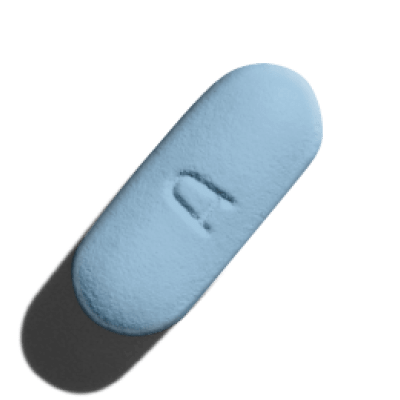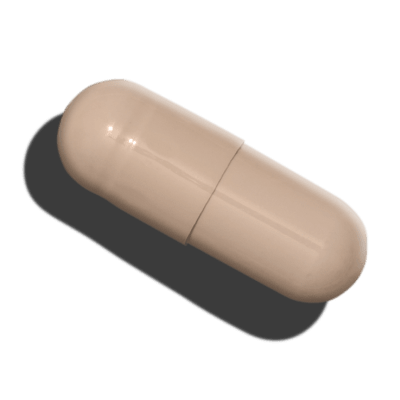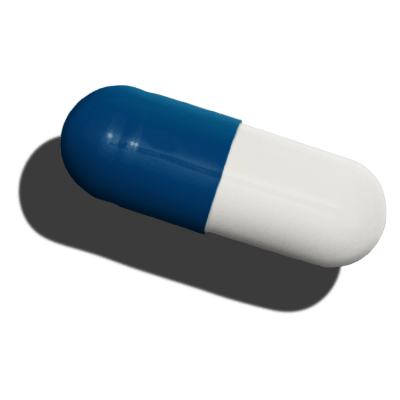Content
Seeking support for your mental health?
Can Low Testosterone Cause Anxiety?

How much do you know about the primary male sex hormone testosterone? Maybe you know that it plays an important role in many aspects of health, especially for men. Or perhaps you don’t know much, but are looking to learn.
Testosterone is responsible for several processes in the body, such as bone strength, sperm production, building muscle mass and improving sex drive. But can low testosterone cause depression and anxiety?
We’ll explore the effect testosterone levels have on your mood and mental health and answer the question of whether low testosterone can cause anxiety.
Content
Anxiety and Depression 101
Can low testosterone cause anxiety? Before diving into this topic, we’ll cover the basics of anxiety and depression first.
Anxiety and depression are two of the most common mental health disorders. Over 40 million adults in the U.S. have an anxiety disorder. Meanwhile, an estimated 21 million people had a depressive episode in 2020, including approximately six percent of the men surveyed.
While it’s normal to feel anxiety occasionally, people with anxiety disorders experience feelings of anxiety or fear that are persistent or worsen in certain situations and impact their daily life.
There are several types of anxiety disorders, such as generalized anxiety disorder (GAD), social anxiety disorder, panic disorder and others.
Anxiety symptoms can vary by the type of anxiety disorder, but both psychological and physical symptoms are common, and include:
Excessive worry
Sweating
Insomnia
Irritability
Rapid heartbeat
Sweating
Nightmares
Oftentimes, those with anxiety disorders may also experience depression or vice versa. Depression, another common mental health condition, is a serious mood disorder that also affects how you think, feel and behave, and can impact your overall quality of life.
Depressive symptoms are more than a low mood and often feel like a heavy, persistent sadness that lasts for weeks, if not months or even years.
Other symptoms of depression can include a loss of interest in activities, decreased libido, trouble concentrating, feeling restless or irritable and thoughts of death or suicide.
The causes of depression and anxiety aren’t quite clear. However, research suggests that genetic and environmental factors can play a role in both mood disorders, as can family history, traumatic events, lifestyle choices or medical conditions.
So, can low testosterone lead to depression and anxiety? Keep reading to learn the answer.
Low Testosterone and Its Effects
Testosterone plays a critical role in many important functions in your body, including sex drive, cognitive abilities and mental health. This hormone is an androgen, a group of steroid hormones responsible for the development of male traits during puberty.
Women also have testosterone, although in lower levels.
Everyone’s testosterone levels differ, and they can also fluctuate based on age, lifestyle, health and more. For men, normal testosterone levels are between 300 to 1,000 nanograms per deciliter (ng/dL), or 10 to 35 nanomoles per liter (nmol/L), of blood.
Low testosterone levels are referred to as low testosterone, “low T,” testosterone deficiency syndrome (TD) and hypogonadism. Below-normal testosterone levels can be caused by several reasons, including:
Aging
Obesity
Low thyroid function
Certain medications such as chemotherapy drugs
Use of alcohol or illicit drugs
Diseases and disorders, including uncontrolled diabetes, kidney failure, obstructive sleep apnea and others
Low testosterone can cause a number of symptoms, including:
Reduced sex drive
Sexual dysfunctions like erectile dysfunction (ED)
Loss of bone density
Increased body fat
Loss of muscle mass
Low sperm count
Difficulty concentrating
Depression
Below normal levels of testosterone are also associated with depressive symptoms like fatigue, feeling hopeless and suicidal thoughts. Men with testosterone deficiency have also shown anxiety symptoms such as uncontrollable fear or panic.
Researchers aren’t exactly sure how low testosterone can cause anxiety or depression, but there are some theories.
Testosterone may promote higher levels of serotonin, a chemical in the brain associated with an improved mood and happiness. If you have low testosterone levels, a lack of serotonin may contribute to developing depression.
There are slight differences between low hormone levels and depression though. The physical symptoms of low testosterone include decreased muscle mass and strength, bone loss and increased body fat.
Meanwhile, physical symptoms of depression are generally aches and pains, headaches, sleep issues, stomach issues and more.
Something else that can affect testosterone levels and cause anxiety? Stress.
When you’re stressed out and your anxiety levels are high, levels of the stress hormone cortisol increase, which in turn reduces testosterone. This combination of increased cortisol and lowered testosterone may make you feel even more anxious, creating a vicious cycle.
Low testosterone can also cause sexual dysfunction like erectile dysfunction, a common condition in which you have trouble getting or maintaining an erection firm enough for sexual intercourse.
If you’re struggling with ED, other issues with sexual performance or reduced interest in sexual activity, this could also cause anxiety or depression to worsen over time.
So to answer the big question of whether low testosterone can cause anxiety or other mood disorders? Possibly.
But since low testosterone and mood disorders have similar symptoms, it’s worth talking to a healthcare provider to determine the cause of your anxiety or depression before proceeding with treatment.
There are different treatment options for both low testosterone and anxiety or depression.
If your depression or anxiety is the result of low testosterone, improving your levels of testosterone may help with those symptoms. Testosterone replacement therapy (TRT) can help with low testosterone.
Testosterone replacement therapy involves taking prescription testosterone by way of a pill, implant, gel, patch or injection. It can result in a stronger sex drive, improved sexual function and a better mood.
Certain lifestyle changes may also help improve low testosterone if your levels are towards the low end of the normal range. Learn more about changes like better sleep habits, regular exercise, eating a balanced diet diet, reducing stress and taking certain supplements — specifically, zinc, magnesium and vitamin D — in our guide to increasing testosterone.
Lifestyle changes like adding exercise, eating a healthy diet, improving sleep and reducing stress can also help reduce anxiety and depression symptoms. Two other common treatment options for mental health include talk therapy and medication.
Talk therapy — more formally known as psychotherapy — can help you find relief from anxiety and depression symptoms by talking through, identifying and learning to change thoughts, emotions or behaviors that negatively affect your well-being.
One of the most effective types of therapy for anxiety and depression is cognitive behavioral therapy, which focuses on identifying negative behavior and thought patterns.
Therapy alone may be enough for your anxiety but some people may also require medication such as antidepressants like sertraline or other anxiety medication such as propranolol to reduce their symptoms.
A licensed psychiatrist can work with you to determine whether therapy, medication or a combination is the best course of action for your mental health.
Low Testosterone & Anxiety: A Recap
Can low testosterone cause anxiety? The short answer is yes, low testosterone could lead to anxiety or depression.
If you’ve lost interest in the activities you usually enjoy, have less energy and are more irritable, you could be dealing with anxiety, depression or both.
If you have those or other anxiety or depression symptoms along with increased body fat, low sperm production or a decrease in strength, you may have low testosterone.
There are effective treatments for both mental health conditions, as well as for low testosterone. You should consult with your healthcare provider to not only determine which condition you’re most likely dealing with but also to figure out which treatment option is the right one for you.
20 Sources
- Anxiety Disorders. (n.d.). NAMI. Retrieved from https://www.nami.org/About-Mental-Illness/Mental-Health-Conditions/Anxiety-Disorders
- NIMH » Major Depression. (n.d.). NIMH. Retrieved from https://www.nimh.nih.gov/health/statistics/major-depression
- NIMH » Anxiety Disorders. (n.d.). NIMH. Retrieved from https://www.nimh.nih.gov/health/topics/anxiety-disorders
- Anxiety Disorders: Types, Causes, Symptoms & Treatments. (2020, December 17). Cleveland Clinic. Retrieved from https://my.clevelandclinic.org/health/diseases/9536-anxiety-disorders
- Salcedo, B. (2018, January 19). The Comorbidity of Anxiety and Depression. NAMI. Retrieved from https://www.nami.org/blogs/nami-blog/january-2018/the-comorbidity-of-anxiety-and-depression
- NIMH » Depression. (n.d.). NIMH. Retrieved from https://www.nimh.nih.gov/health/topics/depression
- Testosterone — What It Does And Doesn't Do. (n.d.). Harvard Health. Retrieved from https://www.health.harvard.edu/medications/testosterone--what-it-does-and-doesnt-do
- Simon, J. (2022, September 16). Androgen. HealthyWomen. Retrieved from https://www.healthywomen.org/your-health/androgen
- Testosterone. (2022, February 1). MedlinePlus. Retrieved from https://medlineplus.gov/ency/article/003707.htm
- Could you have low testosterone? (2021, May 13). MedlinePlus. Retrieved from https://medlineplus.gov/ency/patientinstructions/000722.htm
- Seidman SN. (2002). Exploring the relationship between depression and erectile dysfunction in aging men. J Clin Psychiatry. 2002. Retrieved from https://pubmed.ncbi.nlm.nih.gov/11964139/
- Zitzmann, M. (2020). Testosterone, mood, behaviour and quality of life. Andrology, 8(6), 1598-1605. Retrieved from https://onlinelibrary.wiley.com/doi/full/10.1111/andr.12867
- Walther, A., Breidenstein, J., & Miller, R. (2019). Association of testosterone treatment with alleviation of depressive symptoms in men: a systematic review and meta-analysis. JAMA Psychiatry, 76(1), 31-40. Retrieved from https://jamanetwork.com/journals/jamapsychiatry/article-abstract/2712976
- Trivedi, M. H. (2003). The Link Between Depression and Physical Symptoms. Primary Care Companion to The Journal of Clinical Psychiatry, 6(suppl 1), 12-16. Retrieved from https://www.ncbi.nlm.nih.gov/pmc/articles/PMC486942/
- Brownlee, K. K., Moore, A. W., & Hackney, A. C. (2005). Relationship Between Circulating Cortisol and Testosterone: Influence of Physical Exercise. Journal of Sports Science & Medicine, 4(1), 76-83. Retrieved from https://www.ncbi.nlm.nih.gov/pmc/articles/PMC3880087/
- Low Testosterone (Low T): Causes, Symptoms & Treatment. (2022, September 2). Cleveland Clinic. Retrieved from https://my.clevelandclinic.org/health/diseases/15603-low-testosterone-male-hypogonadism
- Sarris, J., Moylan, S., Camfield, D. A., Pase, M. P., Mischoulon, D., Berk, M., Jacka, F. N., & Schweitzer, I. (2011). Complementary Medicine, Exercise, Meditation, Diet, and Lifestyle Modification for Anxiety Disorders: A Review of Current Evidence. Evidence-based Complementary and Alternative Medicine : eCAM, 2012. Retrieved from https://www.ncbi.nlm.nih.gov/pmc/articles/PMC3434451/
- Bassil, N., Alkaade, S., & Morley, J. E. (2009). The benefits and risks of testosterone replacement therapy: a review. Therapeutics and clinical risk management, 5(3). Retrieved from https://www.ncbi.nlm.nih.gov/pmc/articles/PMC2701485/
- What Is Psychotherapy? (2017, July 31). American Psychological Association. Retrieved from https://www.apa.org/ptsd-guideline/patients-and-families/psychotherapy
- David, D., Cristea, I., & Hofmann, S. G. (2017). Why Cognitive Behavioral Therapy Is the Current Gold Standard of Psychotherapy. Frontiers in Psychiatry, 9. Retrieved from https://www.ncbi.nlm.nih.gov/pmc/articles/PMC5797481/
Editorial Standards
Hims & Hers has strict sourcing guidelines to ensure our content is accurate and current. We rely on peer-reviewed studies, academic research institutions, and medical associations. We strive to use primary sources and refrain from using tertiary references. See a mistake? Let us know at blog@forhims.com!
This article is for informational purposes only and does not constitute medical advice. The information contained herein is not a substitute for and should never be relied upon for professional medical advice. Always talk to your doctor about the risks and benefits of any treatment. Learn more about our editorial standards here.




